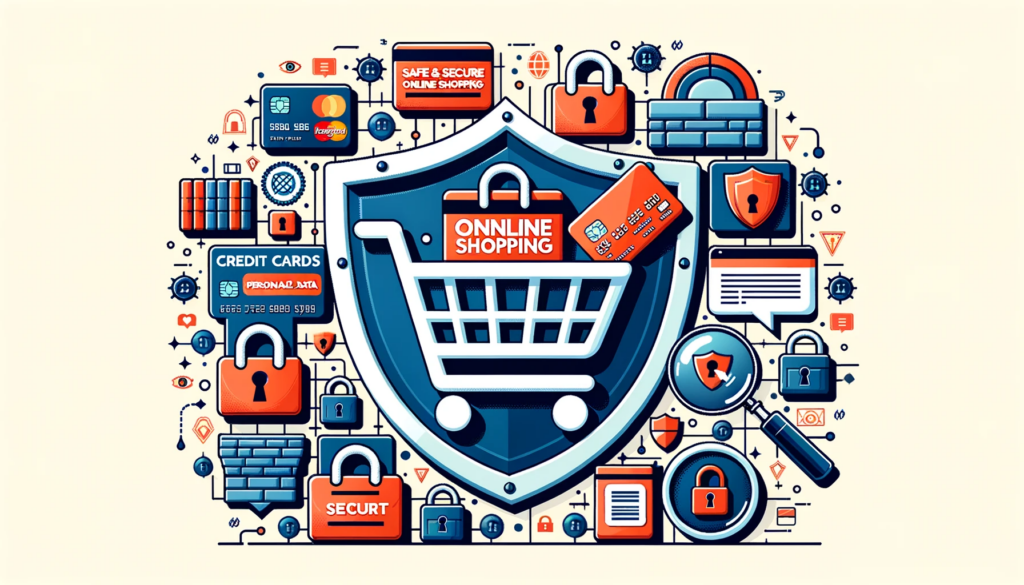
Online shopping has become increasingly popular in recent years, and it’s not hard to see why. It’s convenient, often cheaper, and allows us to shop from the comfort of our own homes. As a result, many of us have become avid online shoppers.
However, as with any activity that involves sharing personal information online, it’s important to be mindful of privacy and security. After all, you don’t want your personal or financial information falling into the wrong hands.
So, what can you do to protect yourself while shopping online? Here are a few tips:
- Use a secure connection: Make sure you’re using a secure connection, either by using a virtual private network (VPN) or by shopping on websites that use HTTPS. This will help protect your information from being intercepted by third parties.
- Use a relay email address instead of exposing your real personal email address. I use Firefox Relay which is readily available on the latest Firefox browser. There are many other relay email providers you can use. Should the website you are buying get compromised, you can easily delete your relay email address without compromising your real email address.
- Use a credit card: If possible, use a credit card for online purchases rather than a debit card. Credit cards offer more protection in the event of fraudulent charges, and it’s easier to dispute those charges and get your money back.
- If you don’t own a credit card, you can create a wallet account with a virtual transaction processing provider like Mastercard or VISA, or you can use a virtual disposable credit card for each transaction.
- For a subscription purchase, you can also use Paypal account for payment. The benefit of doing this is that you can easily cancel your subscription contract from your end via Paypal account dashboard.
- Be cautious with personal information: Do you really need to give your phone number or buyer address when making a purchase? If not, it’s best to bypass those fields if possible. You can also email your purchase to a PO box or a shared parcel collection station.
- In Australia, you can usually bypass the phone number field by entering
0400 000 000. unless you have a reason to provide your phone number, for example if your item is worth quite a bit of money. In such a case, it is better for your privacy to pick up or buy the goods in person and avoid oversharing personal information for merely buying goods. - Also those cardholder name field, I find that it always works whatever name you spoof in the field. The API only cares about your credit card numbers. As long as you own the credit card, in my opinion, you are not breaking any law. You are keeping your personal identifiable information safe.
- In Australia, you can usually bypass the phone number field by entering
- Use a reputable website: If you’re shopping on a website you’re not familiar with, do your research before entering any sensitive information. Look for reviews and check for secure payment methods.
- The smaller the company you are buying from, the more reason to use disposable payment method.
- Use strong, unique passwords: Use strong, unique passwords for each of your online accounts, and enable two-factor authentication if it’s available. You can use a browser or a password app like 1Password to auto-generate your passwords. Remember, if you can remember your password, it’s probably not secure enough.
- When receiving your online purchase, make sure to strip off any personal information from the delivery package before disposal. This also applies to transactional letters you receive in your inbox. Go digital only when possible. Try to minimise having your name and address written down on paper and handled by multiple people.
- On this note, think about whether you really need to add your personal information in the return address of your postal satchel when you are posting an item you sold to someone via Facebook or eBay. Is the item you are posting worth more than your personal information? Think about what the buyer would do with the satchel they receive from you. Would they safely destroy your personal info post delivery? Very unlikely.
If you notice any suspicious transactions on your credit card, don’t hesitate to report it as lost or stolen and ask for a new card detail to be issued.
Overall, it’s important to be mindful of your privacy and security while shopping online. By following these tips, you can protect yourself and enjoy the convenience of online shopping without worrying about your personal or financial information being compromised.
